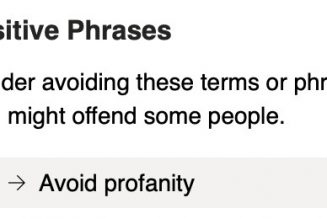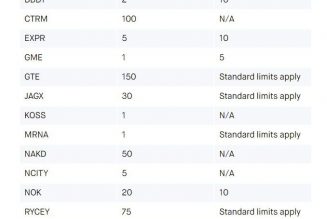
Lately, I’ve been thinking about pandemic safety and Swiss cheese. It’s an uninspiring cheese, but it’s a good visual metaphor for a layered approach to infection control.
This ‘Swiss Cheese Model’ has been around since at least the 1990’s, when it was proposed as a way of thinking about how accidents happen. During the pandemic, it’s been pressed into a different kind of service, used to visualize disease prevention instead of accidents.
In a pandemic as widespread as this one, no single action can keep a person from getting sick. There will always be flaws (holes) in any approach. Washing your hands won’t keep you from breathing in the virus — and wearing a cloth mask won’t completely protect you if you’re stuck in a stuffy room with an infected person. But stack them together with some layers of ventilation and robust testing, and you’ve got yourself a game plan. (Or a really boring cheese plate. Either way.)
A new version with colour & division inspiration from @uq_news and strict mouse design oversight by @kat_arden (ver3.0).
It reorganises slices into personal & shared responsibilities (think of this in terms of all the slices rather than any single layer being most important) pic.twitter.com/nNwLWZTWOL— ɪᴀɴ ᴍ. ᴍᴀᴄᴋᴀʏ, ᴘʜᴅ (@MackayIM) October 24, 2020
The hope is that the holes in one approach will be covered by the strengths of the others. Some layers have more holes than others, and some, like vaccines, don’t exist yet.
The problem is that we seem to keep holding out for a single, solid piece of cheese instead of accepting our hole-y reality. Here in the United States, we just set a record for number of daily cases, adding 99,000 cases in a single day to a total that’s now more than 9 million. At this point, we need everything, anything that we’ve got to beat back this thing that’s stolen all our lives.
It’s not easy. We’ve been at this for months and we are all deeply fatigued. We’re ready to see our friends, or go outside without a mask, or work out at a gym, and instead we’re juggling the masks, hand sanitizer, filtration systems, mental tape measures, and Zoom. Having a single thing to do or remember instead of layering up would be easier than running through our long list of COVID calculations every day.
It’s even worse because each of those Swiss cheese layers we’re wrapping ourselves in only get us to safer. They still don’t get us to safe. There’s no easy app to rate your home’s ventilation, no strict list of rules for forming a pandemic pod, no judge to rule when COVID disputes crop up between friends, or families, or co-workers. The endlessly frustrating answer to seemingly all pandemic-related questions is ‘it depends.’
Scientists are working to figure out more concrete answers. But as rapid as research is, it’s still not going to be able to satiate our deep hunger for certainty “in these uncertain times”. Until this is over, we’re going to have to snack on all the layers we can, stacking every new intervention together until we find a combination that sticks.
Here’s what else is happening this week.
Research
A room, a bar and a classroom: how the coronavirus is spread through the air
This is a fantastic visualization of how the coronavirus might spread in different settings, and with different interventions. Unsurprisingly, the more layers of precautions, the better. (Javier Salas, Heather Galloway/El Pais)
Why You Shouldn’t Worry About Studies Showing Waning Coronavirus Antibodies
There’s been a lot of talk about antibodies recently. This story breaks down what’s useful in those studies — and what isn’t. (Apoorva Mandivalli/The New York Times)
Low risk or dicey? Two new reports paint different pictures of COVID-19 danger while flying
“The risk (of contracting COVID-19 on a flight) is low, but it’s not zero,’’ Christopher Sanford, a founder of the travel medicine clinic at the University of Washington Medical Center told USA Today. “The answer is a big fat ‘it depends,’’
(Dawn Gilbertson/USA Today)
Development
Gilead’s Covid-19 Drug Is Mediocre. It Will Be a Blockbuster Anyway.
Veklury, the drug formerly known as Remdesivir was approved by the FDA last week. But approval doesn’t carry the same potency that many people think it does. “F.D.A. approval doesn’t guarantee a certain level of benefit — all it says is that there is some benefit,” Aaron S. Kesselheim, a professor of medicine at Harvard Medical School told The New York Times. The drug isn’t the silver bullet many have hoped for. But it’s still going to sell extremely well. (Katie Thomas/The New York Times)
Regeneron halts trial of antibody treatment in seriously ill Covid patients
Both Regeneron and Eli Lilly have now stopped testing their antibody treatments on seriously ill COVID-19 patients. They will continue testing these treatments in patients with milder cases, where the drugs may still have some benefit. (Hannah Kuchler/Financial Times)
It may be time to reset expectations on when we’ll get a Covid-19 vaccine
Experts are finding it increasingly unlikely that we’ll see a vaccine that’s safe, effective, authorized and widely available by next spring. That’s not a bad thing — with something that can affect billions of lives, it pays to be cautious. (Helen Branswell/STAT)
Moderna says it’s preparing global launch of Covid vaccine as it takes in $1.1 billion in deposits
Even as timelines get pushed, drug companies are pressing forward with manufacturing their vaccines in anticipation of approval. That’s also not a bad thing — if the drug is safe and effective, being prepared for an approval could help ease demand and get more people vaccinated faster. (Berkeley Lovelace Jr./CNBC)
Temperature sensors will help keep COVID-19 vaccines potent
Take a peek inside the tech that will help safely distribute whichever vaccine is eventually approved. (Nicole Wetsman/The Verge)
Perspectives
What We’re Voting for: Public Health
There’s an election in the US next week. The outcome matters to any number of causes, from platform regulation to democracy itself — and in the middle of a worsening pandemic, the future of public health in the US will be decided at the ballot box. Nicole Wetsman has an editorial at The Verge about what’s at stake for public health in this election.
Additional reading:
America Is About to Choose How Bad the Pandemic Will Get
(Ed Yong / The Atlantic)
More than numbers
To the more than 45,683,708 people worldwide who have tested positive, may your road to recovery be smooth.
To the families and friends of the 1,190,516 people who have died worldwide — 229,710 of those in the US — your loved ones are not forgotten.
Stay safe, everyone









